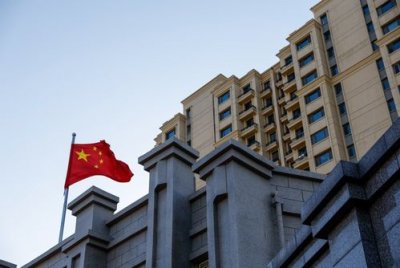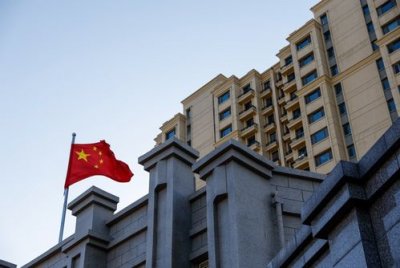China Evergrande de-listed from Hong Kong Stock Exchange

An Evergrande housing development in Beijing, China, pictured in January 2024, around the time a Hong Kong court ordered the firm to liquidate because it was unable to pay its debts. File photo by Mark R. Cristino/EPA-EFE
Aug. 25 (UPI) — Chinese property giant China Evergrande was delisted from the Hong Kong stock exchange on Monday, 20 months after being placed into liquidation by a court in the semi-autonomous region of China and almost 15 years after it was the most oversubscribed IPO of 2009 with a $50 billion valuation.
Hong Kong Exchanges and Clearing said it canceled the listing effective Monday because an 18-month deadline for Evergrande to resume trading passed last month, with the company opting not to appeal the decision.
“The exchange advises shareholders of the company who have any queries about the implications of the delisting to obtain appropriate professional advice,” said HKEX.
Macrolens managing principal Brian McCarthy told CNBC he expected investors holding Evergrande shares and bonds to lose most of their money and that a surge in Chinese property stocks might just be the initial phase of a “speculative frenzy” in Chinese equities.
“There have been some attempts to attach [Evergrande’s] assets, but they’ve not really managed to liquidate anything for more than a few cents on the dollar,” said McCarthy.
He warned that the debacle put foreign investors who invest in China via Hong Kong on notice that they have “limited recourse to onshore assets if things went bad,” and predicted that shareholders and bondholders in most of the large Chinese property developers would end up with “goose eggs.”
Trading in Evergrande shares ceased in January 2024 after a judge issued a winding-up order after the developer repeatedly failed to come up with a viable plan to restructure liabilities of at least $325 billion.
Shares sold at 45 cents back in 2009 were worth 2 cents at the last quote early Monday.
Trading in the stock had been suspended several times since 2021, but it has always managed to resume within the maximum permitted gap of 18 months to avoid delisting.
“Once delisted, there is no coming back,” Dan Wang, China director at political risk consultancy Eurasia Group, told the BBC.
The firm sought bankruptcy protection in the United States in August 2023 and regulators suspended the stock the following month amid reports that founder and chairman Hui Ka Yan was under house arrest on the mainland.
Hui presided over a 15-year drive to build Evergrande into one of China’s largest businesses, but the growth was delivered through massive borrowing, much of it highly leveraged.
Much of Evergrande’s debt is owed to prospective homebuyers with down payments on apartments and houses that are half-built, or on which work has yet to start, as well as suppliers and subcontractors.
Hui was fined $6.5 million and received a life ban from participating in China’s capital market for claiming Evergrande’s revenue was $78 billion more than it actually was.
In summer 2023, after failing to issue financial results for two years, the group belatedly reported that it had lost $81.1 billion during the period as it battled to maintain payments to suppliers and lenders and complete projects across China.
The losses, $66.4 billion in 2021 and $14.7 billion in 2022, were blamed on a market slump that forced it to take haircuts on its developments and financial assets and higher borrowing costs.
The demise of the firm, which at its peak had more than 1,300 projects in 280 Chinese cities, is the most high-profile symbol of the crisis enveloping China’s property sector, which accounts for as much as 25% of GDP.

